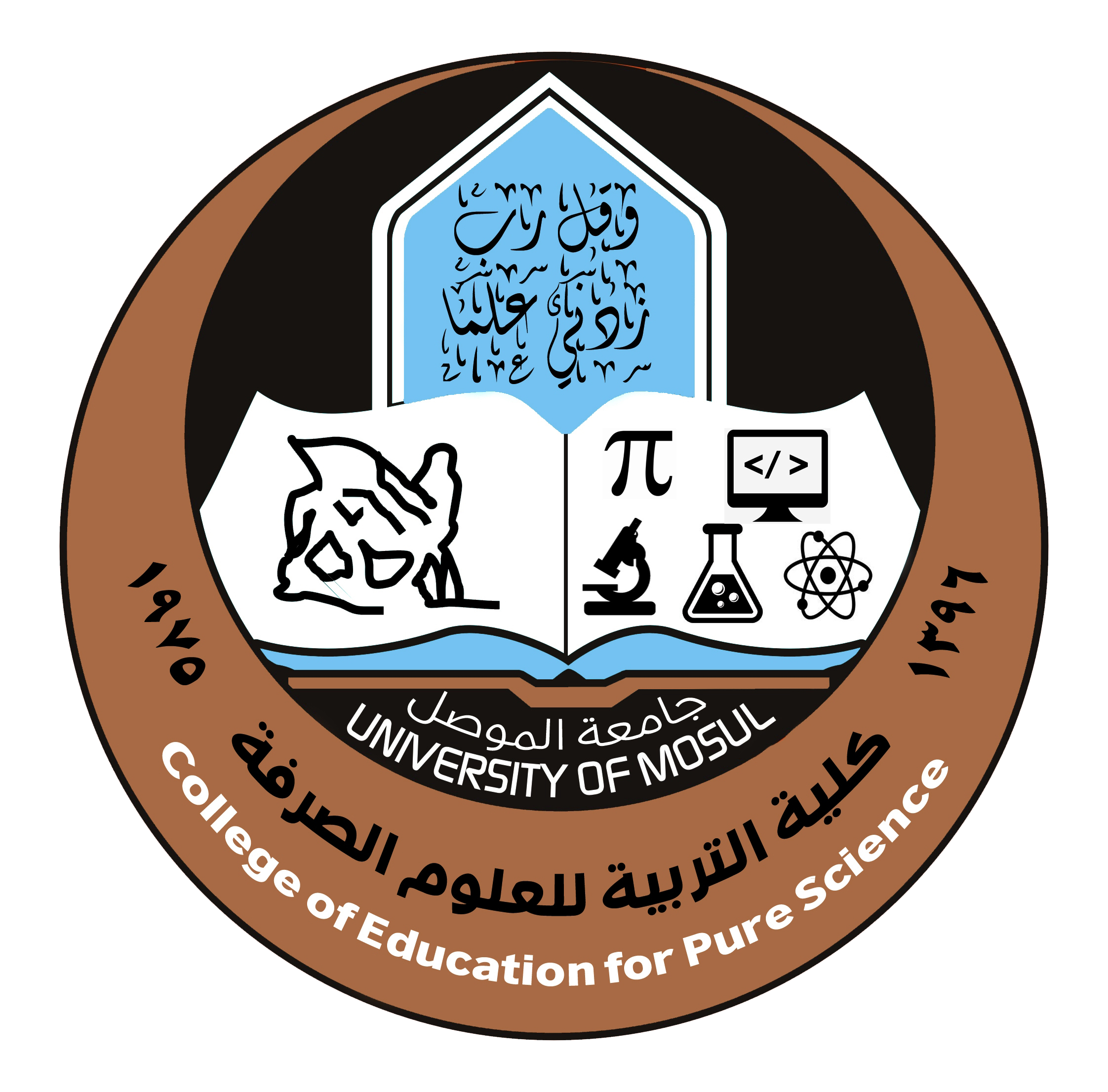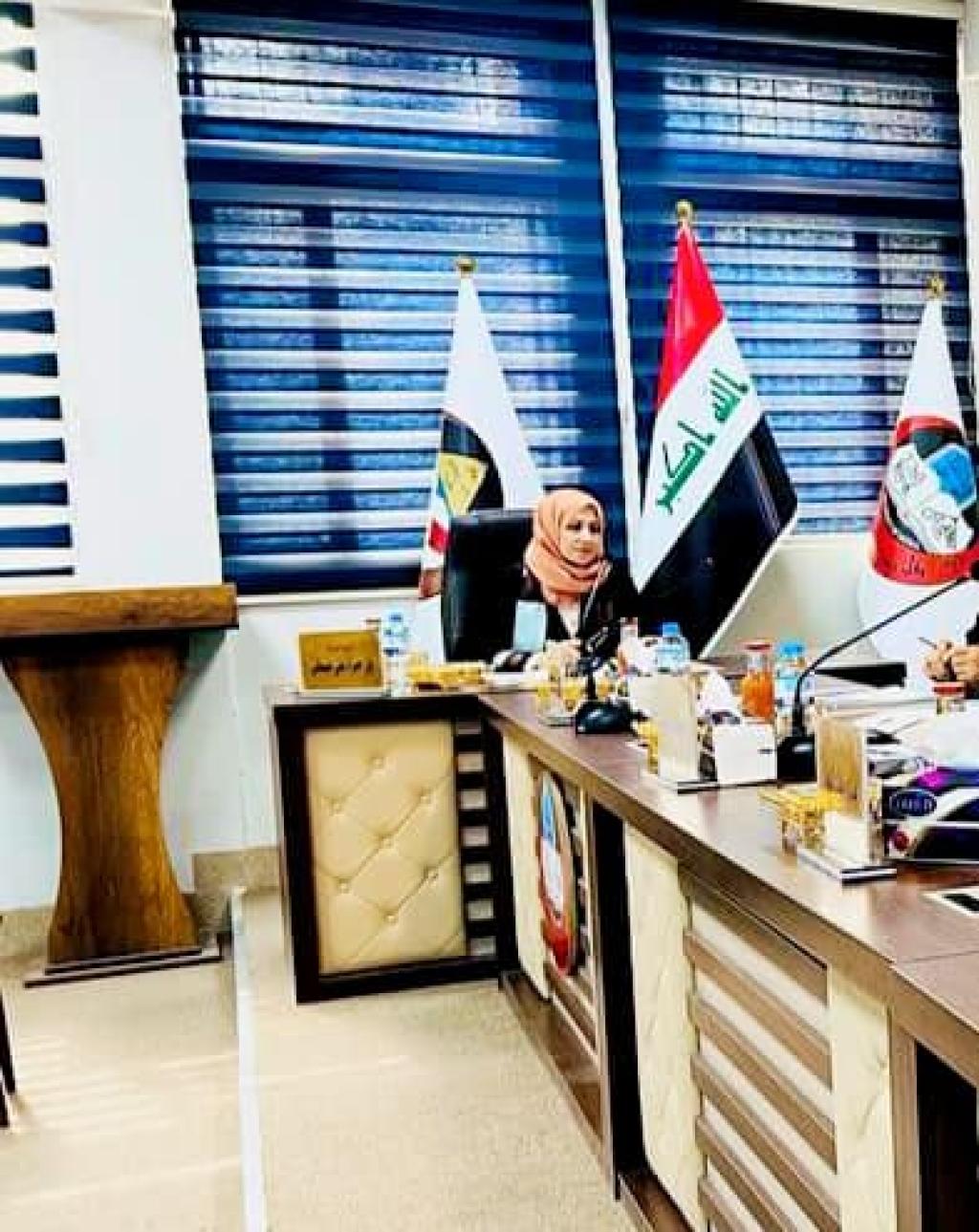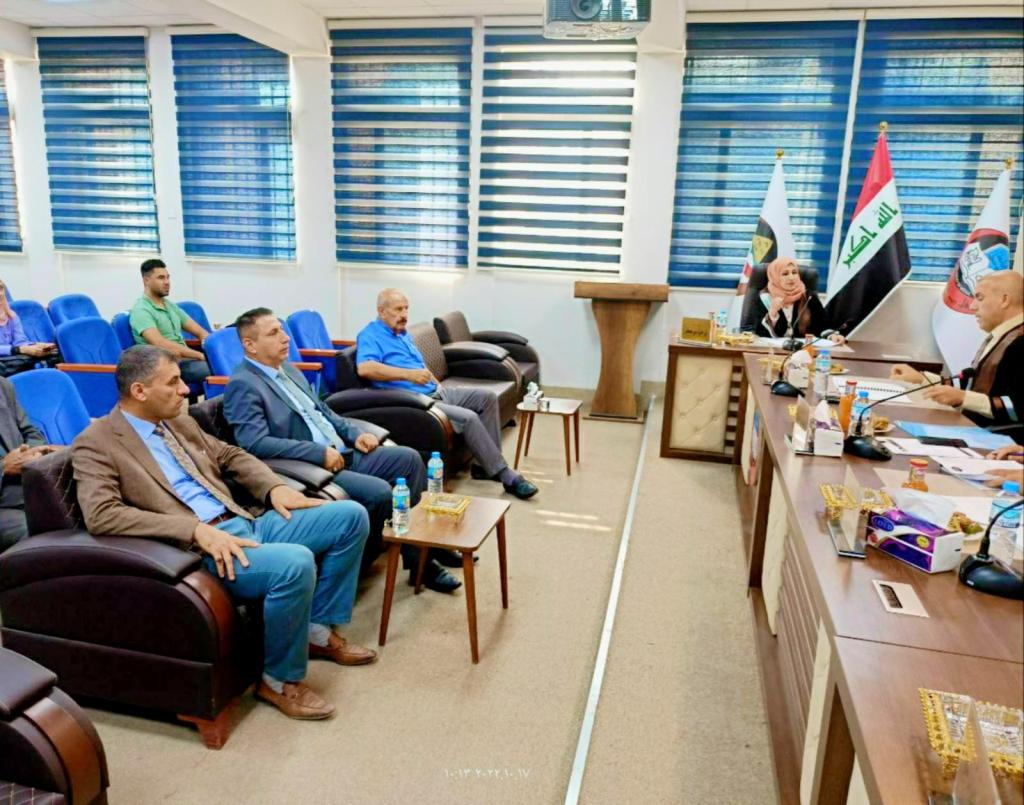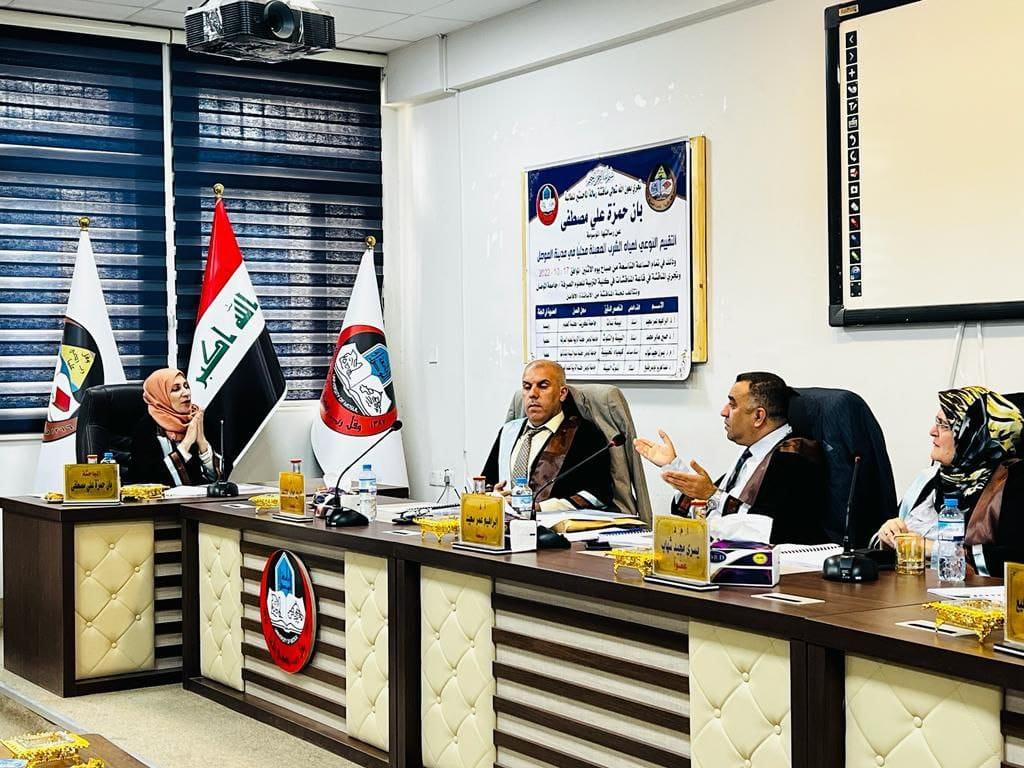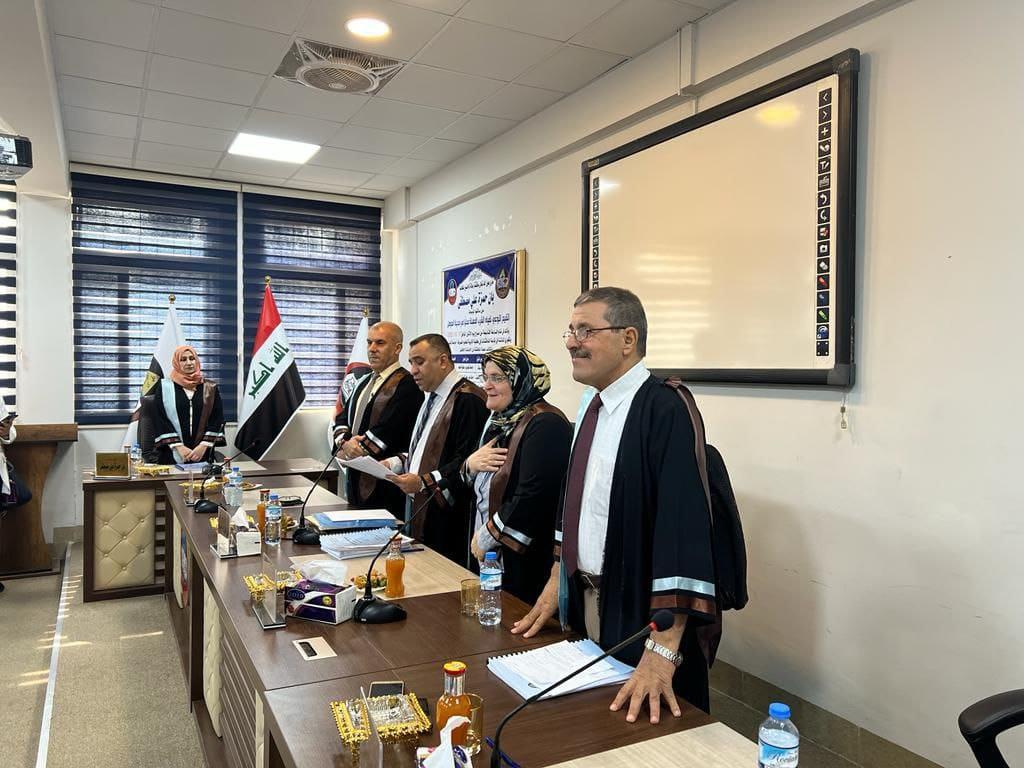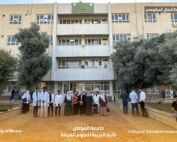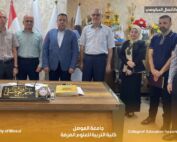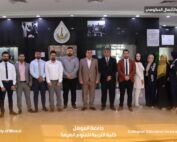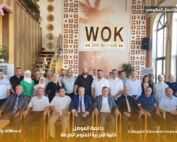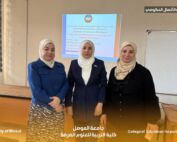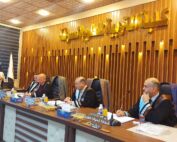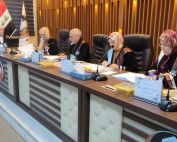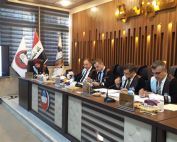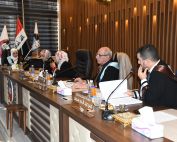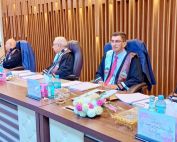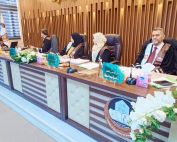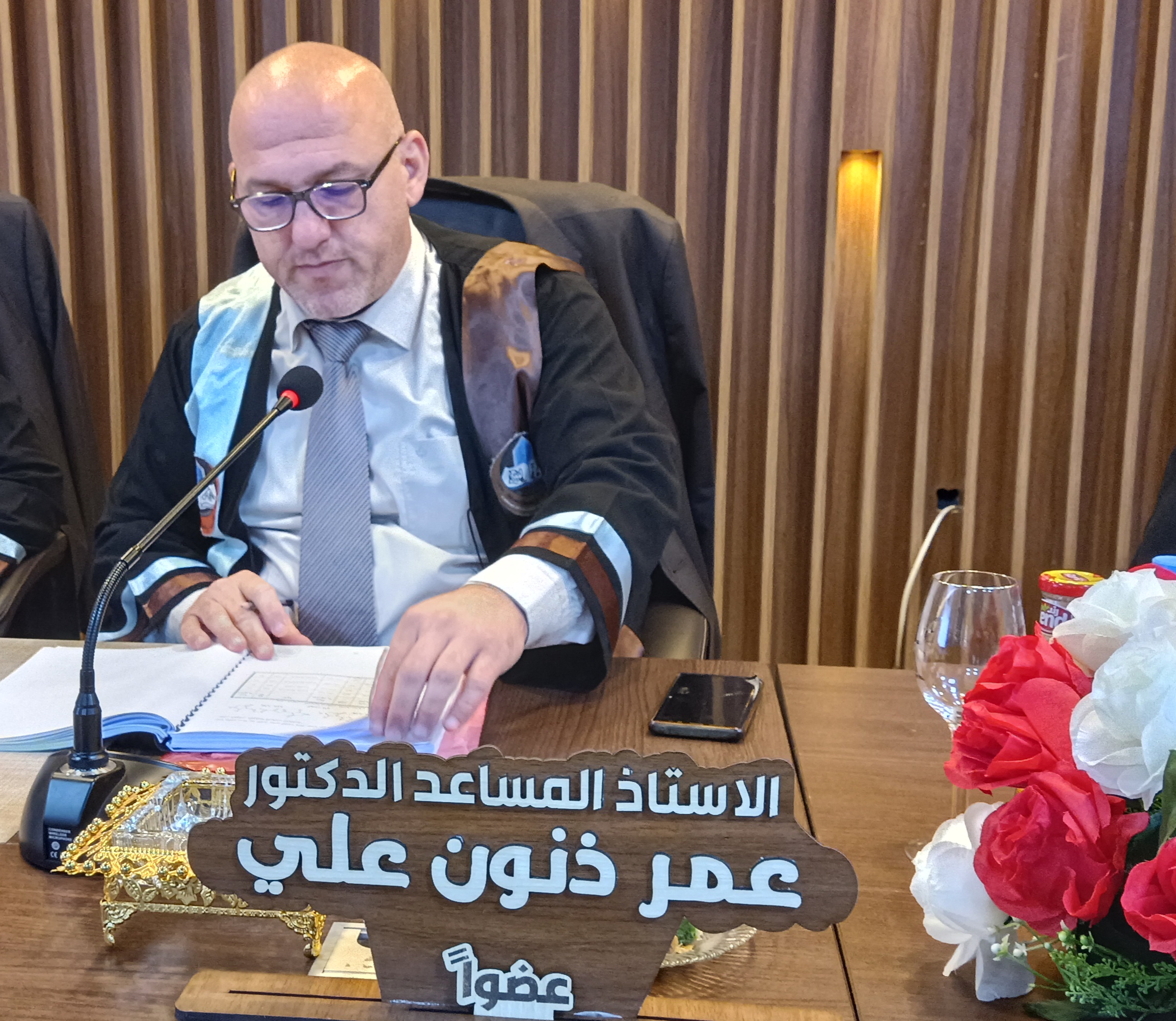17 October، 2022
Master Thesis Viva-Biology Department
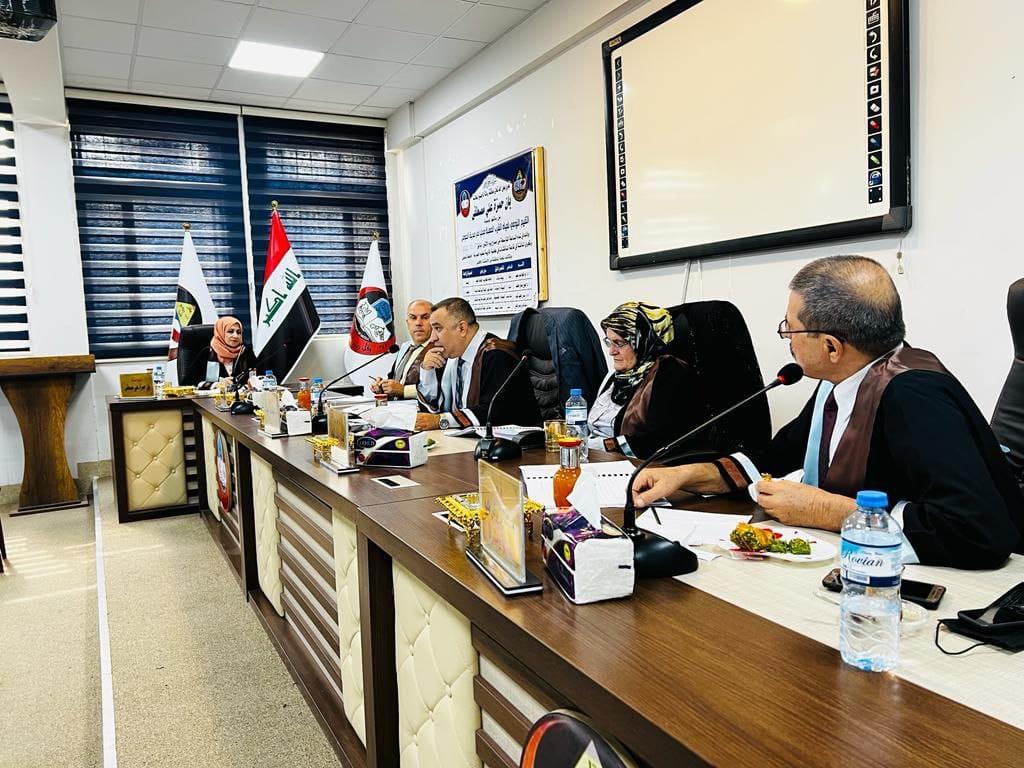
Master Thesis Viva in the College of Education for Pure Science entitled ” Qualitative Assessment of Locally Bottled Drinking Water in Mosul City”The College of Education for Pure Science, University of Mosul, has done the Master Thesis Viva entitled ” Qualitative Assessment of Locally Bottled Drinking Water in Mosul City”,On Monday, October 17, 2022, the respected Dean of the College, Assistant Professor Dr. Qais Ismail Ibrahim, the Honorable Scientific Associate and Administrative Associate, the Honorable Head of the Department of Biology, and a number of the college’s teachers were attended the viva. This study, presented by the M.Sc. Student Ban Hamza Ali Mustafa in the Department of Biology, aimed to evaluate the locally bottled water in the popular stores on the left side of Mosul city, as it is one of the very few studies in the Nineveh Governorate, especially in these difficult circumstances such as weak control to stand up to any emergency situation. The samples were collected from ten randomly distributed stores during the autumn and winter seasons with eleven replicates for each store to conduct chemical tests such as pH, Total alkalinity (T.A), Total hardness (T.H), Calcium hardness (Ca. H), Magnesium hardness (Mg. H), Dissolved oxygen (DO), Chlorides (Cl-), Sulfate (SO4=), Nitrate (NO3-), Phosphate (PO4-3), Sodium ions (Na+), Potassium ions (K+), and physical tests such as Temperature T˚C, Total dissolved salts (T.D.S), and Electrical conductivity (E.C25), as well as bacterial tests for the total number of bacteria (TPC), Fecal coliform and E. coli numbers, with the use of mathematical models to assess water quality such as the pollution index model (PI WQI) and the assessment of the health risks of nitrate (HHR) in comparison with the approved international standards for drinking water. The results of the PI WQI for drinking showed that its values ranged between (2.979 – 0.284) as it was classified as Good quality water, except for sites 7, 4, 2, which were classified as lightly polluted water. This relative deterioration is attributed to the increase in some of the studied characteristics, especially fecal coliform bacteria, which ranged between (16˂-0.0) cells. 100ml-1. It was also noted from the study that the salt values fell below the permissible limit for drinking due to the inefficiency in removing salts in the bottled water treatment units, which negatively affects the health of consumers. As for the health effect of nitrate ions in drinking water, the values of the hazard quotient QH did not exceed the permissible limits for all age groups (QH= 1) and there are no health problems for nitrates in the studied water samples because the values ranged between (0.01538 – 0.00450) and the highest values of the hazard quotient were for the children and Infants category, while the lowest values were for the age group (16-18) years, and this is due to the fact that the concentration of nitrate ions in the studied water is within the permissible limits for drinking (50) and did not exceed (0.665) mg. l-1. The Viva committee was chaired by Prof. Dr. Ibrahim Omar Saied / University of Tikrit / College of Science and the membership Prof. Dr. Hussein Sabir Mohammed / University of Mosul / College of Education For Pure Science, Asst. Prof. Dr. Yosra Majeed Shehab / University of Mosul / College of Environmental Science and Technologies and under the supervision and membership of Prof. Dr. Abdul Aziz Younis Al-Safawi / University of Mosul / College of Education For Pure Science .
